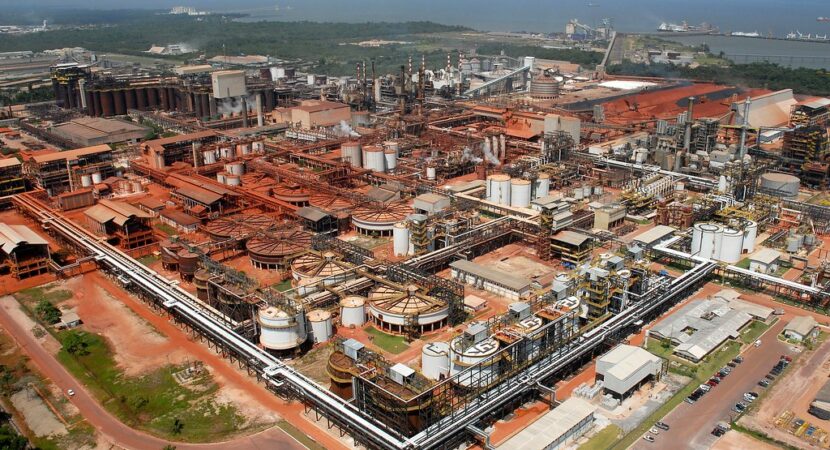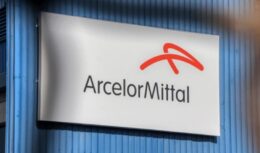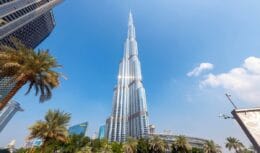
Hydro's refinery in Barcarena, Pará, will receive an investment of R$ 1,1 billion for replacing fuel with natural gas
On April 15th (Thursday), Hydro signed a memorandum of understanding for its alumina refinery, located in Barcarena, in the state of Pará, to replace the use of fuel oil with natural gas. Investments by the Norwegian aluminum company will amount to R$ 1,1 billion and this exchange is part of the climate strategy plan and the reduction of carbon emissions that Hydro is part of.
- Qualidados Engenharia recruits maintenance, electrician, process, automation engineers and also offers several other job openings in different states
- IEL-ES offers 82 internship places for high school students
- Sebrae-SP opens 244 places in free online and distance learning courses in 18 regions of the state
- Government of São Paulo, Huawei and ABGD offer 260 places in free courses on installing photovoltaic solar energy systems using a mobile unit
- Usina Santa Adélia opens job vacancies for mason, welder, operator, technician and more in São Paulo
Replacement of fuel oil with natural gas at the Alunorte refinery, in the state of Pará
The supply of liquefied natural gas to Barcarena, Pará, will be carried out by NFE – New Fortress Energy – and is scheduled to start in 2022. The aluminum company will adapt to the calcination process and part of the refinery’s steam production will be used in the exchange of fuel oil for natural gas as energy.
The project is part of the company's climate strategy and its global commitment to reduce greenhouse gas emissions by 30% by 2030 and, with the replacement of fuel oil by the use of natural gas, around 600.000 tons of CO2 will be reduced at the refinery in Barcarena, Pará.
According to the memorandum of understanding signed on 15/04, NFE must deliver the agreed minimum amount of natural gas to the refinery every year for a period of 15 years. Natural gas will come from the LNG regasification station, which is close to Alunorte, in Barcarena, Pará.
The use of natural gas by the refinery
The refinery will become an important consumer of natural gas in the state of Pará, therefore it will be the engine of the LNG facility in the state. The supply of natural gas is very important for the industrial development of the region, which will allow the use of LNG instead of fuel, thus avoiding the emission of large amounts of carbon dioxide, with LNG having less impact on the environment.
John Thuestad, executive vice president of Hydro's Bauxite and Alumina business area, said they are committed to driving sustainability by improving practices used in industries to reduce impacts on the environment. According to him, Hydro is promoting and supporting the use of natural gas in the state of Pará.
Three Hydro boilers could undergo changes
Hydro will still carry out another replacement: it will install three electric boilers that will be replacing coal at the refinery in Barcarena, in the state of Pará. The pilot installation of this project is expected to be carried out later this year and this change should reduce 400.000 tons of CO2 emissions at the refinery.
The alumina refinery in the state of Pará: The Refinery Alunorte is the largest alumina refinery in the world outside of China and is located in the city of Barcarena, in the state of Pará. In production, alumina is the raw material for aluminum and is produced from bauxite, through the so-called Bayer process. The bauxite used at the Alunorte Refinery comes from Mineração Paragominas, through a pipeline, and from Mineração Rio do Norte, through the port of Vila do Conde. Part of the alumina produced by the refinery in the state is exported and the other part is supplied to the Albras plant, also located in Barcarena, where it produces aluminum ingots.













Army summons Brazilians with up to…
Come be a watermelon, you too
Air Force F-16 fighters…
Everything is fine, 100-year secrecy,…
Air Force F-16 fighters…
Well... It's flying scrap... Typical...
Air Force F-16 fighters…
Which genocide are you talking about? Than…
They discover the third largest deposit…
That’s why all foreigners and NGOs…
Ask the "Lezer da Conceição Barbosa", now...
For Portuguese class? Look for a school…
That's good... The news is for those who...
"Marcos da Silva Alves" wants...
Excellent news. She had never heard of it. He…
Xiiii apparently it will take time to…
Where will it be "written"? In the paper?
Take Cristian's tip "read more"